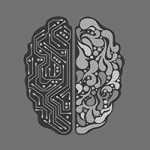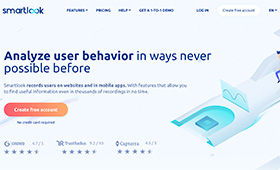How Google Duplex develops our Blade Runner Instinct
Google stunned the world with a great piece of artificial intelligence! Oh boy, were we wrong thinking that this technology would take at least another decade to be completed. Apparently it’s already possible this summer with Google Duplex.
So what am I talking about you ask? I’m talking about the Google I/O festival a few weeks ago, in which the Google Duplex Software made a phone call with a restaurant to reserve a table.
Unless you were sleeping underneath a rock the last couple of years, you already understood that computers are everywhere nowadays. They are part of traffic, they are on the phone and they are even in your inbox. They are now even faster and they work in more radical ways than we had ever imagined. Which is why we need to develop our ‘Blade Runner’ instincts: to recognise when we’re talking to a human being or a replicant (AI-System).
If you watched the event, you’ll notice how human-like that phone call was. Google noticed it as well, which is why Google Duplex will always identify itself on the phone as being an AI-system. And this might become a problem because not every AI-system will do this.
Have you ever received a phone call from a person with a very heavy accent, trying to speak English? He’s telling you that he works for Microsoft and that you have a virus on your computer? In 6 to 12 months, this person will actually speak English flawlessly and fluently. Not only that, he might be calling hundreds or thousands other people at the very same time. This technology doesn’t necessarily need to be coming from Google Duplex. It could be some code build on top of Google Duplex or some similar technology all together.
How intelligent is an AI-system?
In Belgium, “Media Knowledge” is a mandatory course in our schools’ curriculum. Maybe it’s about time to add artificial intelligence as well! So we can teach ourselves and our children that sometimes we’ll be talking to a human, sometimes to a machine. We’ll need to learn to adapt and behave accordingly.
Self-driving cars will always make errors and take wrong decisions, and they might make different decisions than humans. Virtual assistants are much more literal than people, and when they make a joke, it is programmed by people. A person would say ‘thank you’ if you help him or her out, an automatic script wouldn’t. That’s an important part of artificial intelligence: virtual assistants are automated scripts.
Their ‘intelligence’ lies in how well they can translate our voice into instructions, which they can then carry out. They wouldn’t have an opinion about that instruction (or anything else for that matter), meaning they are not ‘intelligent’ in that sense. You do not have to say ‘please’ or ‘thank you’.
IS Google Duplex Creepy?
However, Google demonstrated the ‘pretty please’ functionality as well. When enabling that setting, your children should say ‘please’ when asking the virtual assistant for something. Google Duplex would then answer politely. Google wants us to teach our children how to be courteous to AI.
Maybe that’s even creepier than having a computer calling a restaurant. Yes, let’s add Artificial Intelligence to the schools’ curriculum. Or we can just call that course ‘Blade Running’.







No responses yet to “How Google Duplex develops our Blade Runner Instinct”